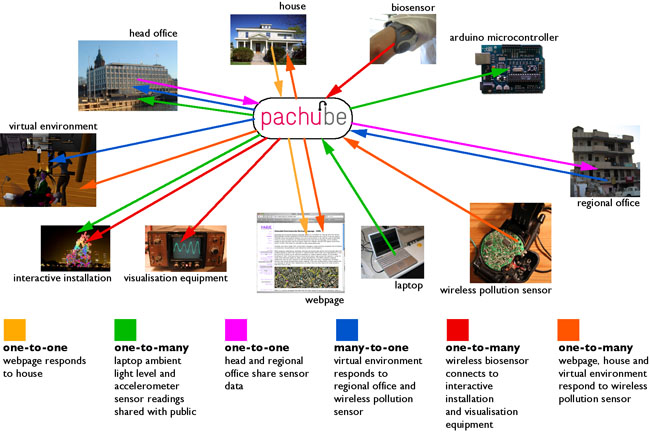PACHUBE
BACK
How does it work?
There are 3 simple steps to Pachube.
1.) Find hardware then connect it using the Pachube API
2.) Sign up for a Pachube account.
3.) Find applications or you can build your own using the Pachube API
Pachube - pronounced as "patch-bay", connects people to devices, applications, and the Internet of Things. As a web-based service built to manage the world's real-time data, Pachube gives people the power to share, collaborate, and make use of information generated from the world around them.
Visit the website here
Pachube was born out of founder Usman Haque's need to handle real-time data from sensors in interactive environments for his design practice. The prototype officially became Pachube in 2008, and was released to the public in 2010. Since then, Pachube has powered crowdsourcing movements, been built into consumer devices, and made possible thousands of custom applications.
Pachube is a little like YouTube, except that, rather than sharing videos, Pachube enables people to monitor and share real time environmental data from sensors that are connected to the internet. Pachube acts between environments, able both to capture input data (from remote sensors) and serve output data (to remote actuators). Connections can be made between any two responsive environments, facilitating even spontaneous or previously unplanned connections. Apart from being used in physical environments, it also enables people to embed this data in web-pages, in effect to "blog" sensor data.

As a generalized realtime data brokerage platform, the key aim is to facilitate interaction between remote environments, both physical and virtual. Apart from enabling direct connections between any two responsive environments, it can also be used to facilitate many-to-many connections: just like a physical "patch bay" (or telephone switchboard) Pachube enables any participating project to "plug-in" to any other participating project in real time so that, for example, buildings, interactive installations or blogs can "talk" and "respond" to each other.